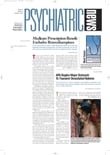The Department of Health and Human Services (HHS) has issued a final regulation that limits the use and duration of preexisting-condition exclusions imposed by group health plans and group health insurance issuers.
The final regulation, which implements provisions of the Health Insurance Portability and Accountability Act of 1996 (HIPAA), also requires these entities to offer an immediate “special enrollment” opportunity to certain individuals who lose eligibility for other group health coverage or other health insurance, and to otherwise eligible new dependents.
The regulation, which becomes effective for plan years starting on or after July 1, finalizes an interim rule that was first published on April 8, 1997, for public comment. In response to comments received during that period, the final regulation contains features that are intended to bolster HIPAA's consumer protections while minimizing the burdens imposed on group health plans and group health insurance issuers, according to HHS.
“We have listened to public comment and worked to craft a rule that will provide maximum protection for consumers, while minimizing the burden on health plans,” said Mark B. McClellan, M.D., Ph.D., administrator of the Centers for Medicare and Medicaid Services.
These are among the provisions in the final regulation:
•
Group health plans and group health insurance issuers are required to include an educational statement on their HIPAA rights with the certificate of creditable coverage provided to individuals when they lose coverage under the plan, and includes model language for the statement. (A certificate of creditable coverage is a document that reflects details about an individual's prior health care coverage for purposes of reducing the extent to which certain plans or insurers can apply preexisting condition exclusions. For example, three months of creditable coverage may reduce a plan's preexisting condition exclusion by that amount.)
•
Health plans maintained by foreign governments and by the U.S. government (such as Veterans Affairs coverage) are recognized as creditable coverage that can be used to eliminate or reduce the length of a preexisting-condition exclusion.
•
Sample language is offered that plans and issuers can use when notifying participants of preexisting-condition exclusions.
•
The regulation clarifies that certain plan-benefit restrictions are in fact preexisting-condition exclusions that must comply with HIPAA's rules.
HHS is also publishing a proposed regulation that solicits comments on some potential additional aspects of HIPAA group health plan requirements. Among its provisions:
•
The regulation provides an extension of time for individuals to exercise certain HIPAA portability rights, in situations in which the individual is not promptly notified through a certificate of creditable coverage that he or she has lost coverage.
•
Group health plans and group health insurance issuers must provide a certificate of creditable coverage when an individual leaves a group health plan while taking leave under the Family and Medical Leave Act, and that any period during which a person does not have coverage while under such leave does not count against him with regard to HIPAA's protections.
